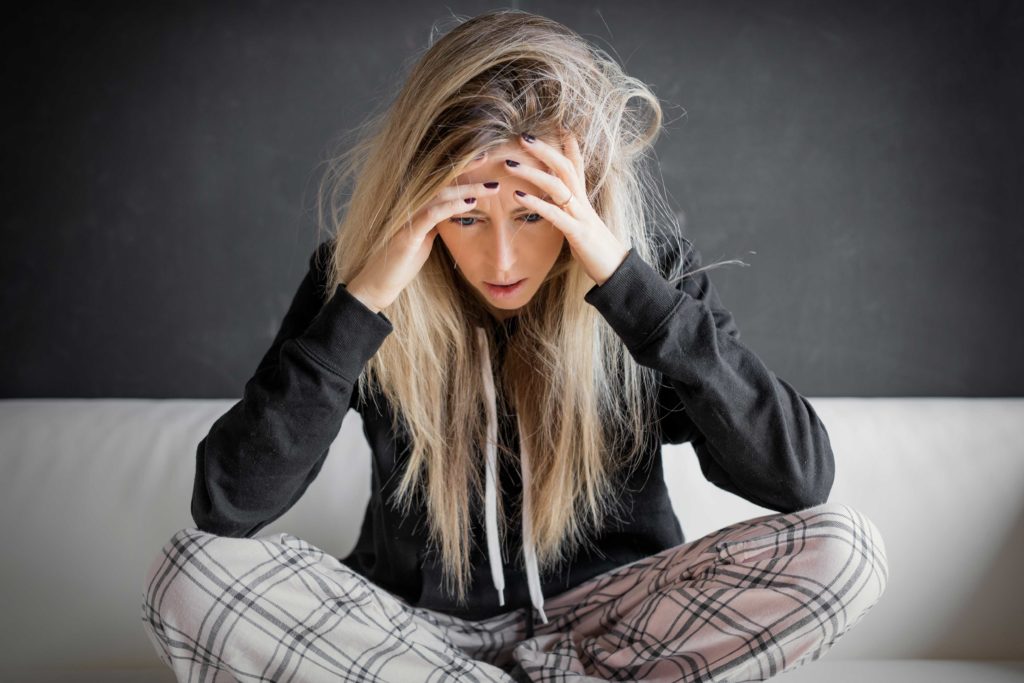How to deal with Anxiety?

Anxiety is a normal emotion that we all experience at one time or another. However, for some people, anxiety can be a chronic, debilitating condition that interferes with their daily lives. If you suffer from anxiety, there are 10 tips to help you feel better.
1. Identify the source of your anxiety.
2. Seek professional help.
3. Make lifestyle changes.
4. Practice relaxation techniques.
5. Challenge your negative thoughts.
6. Build a support network.
7. Avoid drugs and alcohol.
8 Take care of yourself .
9 Get enough sleep .
10 Seek professional help if your anxiety is severe
Identify the source of your anxiety.
Is your anxiety work-related
If your anxiety is work-related, it may be caused by job insecurity, unrealistic workloads or deadlines, or conflict with colleagues or superiors. If you’re self-employed, financial insecurity can also be a source of anxiety. To identify whether your anxiety is work-related, try to pinpoint when and where it began. If you’ve been feeling anxious for a long time, make an appointment with a therapist to discuss your symptoms and possible causes.
Do you have any medical conditions that could be causing anxiety
Anxiety can sometimes be caused by medical conditions such as heart disease, thyroid problems, chronic pain, or asthma. If you’re taking medication for another condition, it’s possible that the side effects could include anxiety. If you think your anxiety might have a medical cause, talk to your doctor about getting a referral to a mental health professional.
Are there any specific situations or events that trigger your anxiety
Anxiety can also be triggered by specific situations or events, such as public speaking, flying in an airplane, or going on a first date. If you know that you tend to feel anxious in certain situations, it can help to be prepared ahead of time with coping strategies. For example, if you’re anxious about flying, you might read up on the statistics of plane crashes beforehand so that you can remind yourself that the likelihood of an accident is actually very low.
Seek professional help.
If your anxiety is severe, talk to your doctor about medication options.
Consider therapy to help you understand and manage your anxiety
If you’re struggling with anxiety, it’s important to seek professional help. There are a variety of treatment options available that can help you manage your symptoms and feel better.
If your anxiety is severe, talk to your doctor about medication options. There are several types of medications that can be effective in treating anxiety, including antidepressants, anti-anxiety medications, and beta-blockers. Your doctor can help you determine which type of medication is right for you based on your symptoms and medical history.
Consider therapy to help you understand and manage your anxiety. Cognitive behavioral therapy (CBT) is a type of therapy that can be particularly helpful in treating anxiety disorders. CBT helps you learn to identify and change the negative thoughts and behaviors that contribute to your anxiety. If you’re interested in pursuing therapy, ask your doctor for referrals or look for a therapist who specializes in CBT.
Make lifestyle changes.
Exercise regularly to reduce stress and improve your overall health
Regular exercise is a great way to reduce stress and improve your overall health. It can help to increase endorphins, which have mood-boosting effects, and it can also help to improve sleep and concentration. A moderate amount of exercise is the key to reducing anxiety, so aim for 30 minutes of moderate-intensity activity most days of the week.
Eat a healthy diet and avoid caffeine and alcohol
Eating a healthy diet is important for reducing anxiety. Be sure to include plenty of fruits, vegetables, and whole grains in your diet, and limit your intake of caffeine and alcohol. Both of these substances can make anxiety worse.
Get enough sleep to help your body and mind recover from the day
Getting enough sleep is crucial for managing anxiety. Most adults need 7-8 hours of sleep per night, but if you’re struggling with anxiety, you may need more. Make sure to get some relaxation time in before bed so that you can wind down from the day’s events.


